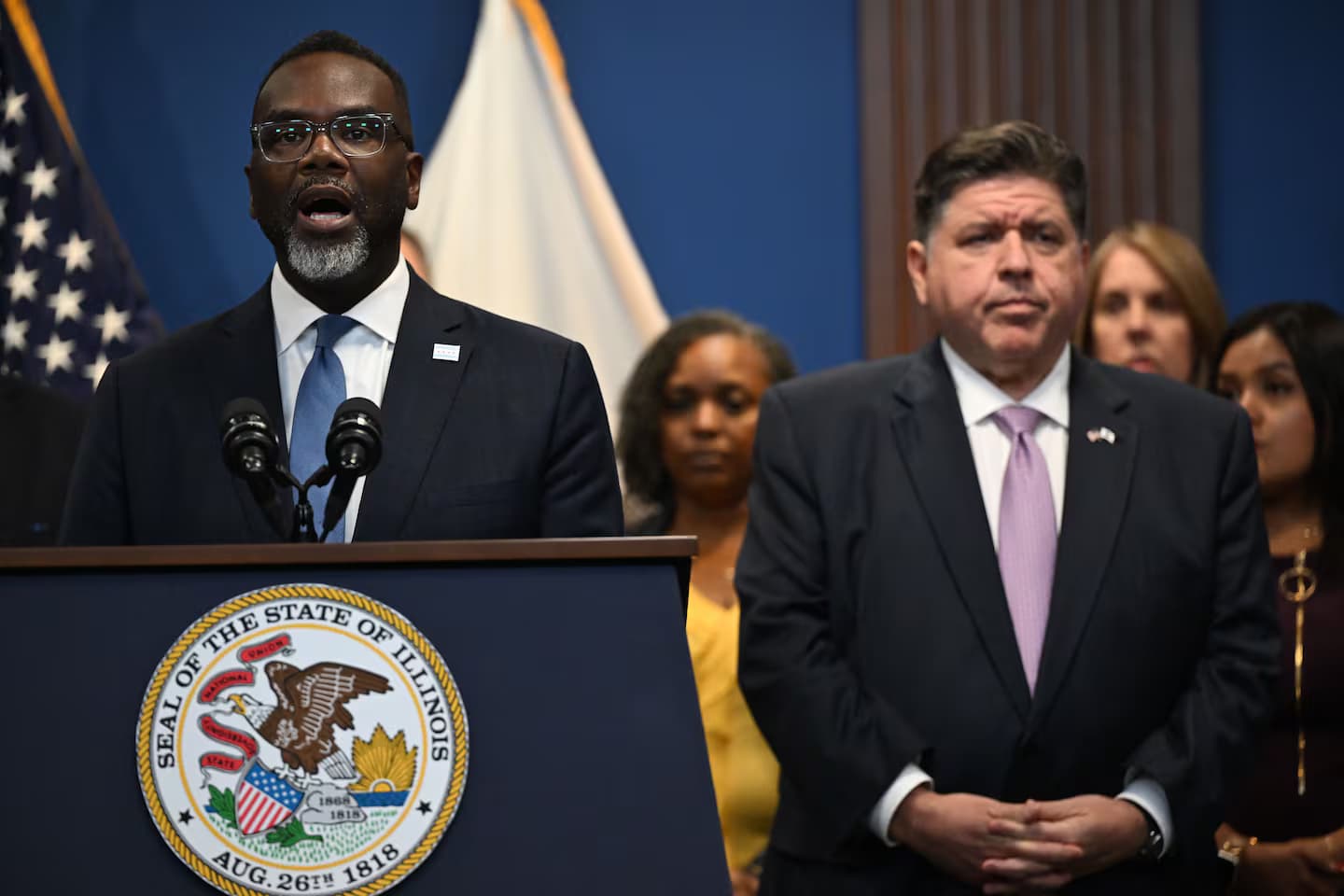We're loading the full news article for you. This includes the article content, images, author information, and related articles.
Illinois Governor J.B. Pritzker has strongly rebuked former President Donald Trump's demand to jail him and Chicago Mayor Brandon Johnson, highlighting a growing political polarisation in the United States that could have implications for international relations, including with Kenya.

Illinois Governor J.B. Pritzker issued a defiant response on Wednesday, October 8, 2025, after former President Donald Trump called for his and Chicago Mayor Brandon Johnson's imprisonment. Trump accused the two Democratic leaders of failing to protect federal immigration officers in Chicago. Pritzker, in turn, dared Trump to "come and get me" and characterised the former president's remarks as a move towards "full-blown authoritarianism."
The exchange follows Trump's directive to deploy National Guard troops to Chicago, a move opposed by both Pritzker and Johnson. Johnson had previously signed an executive order establishing "ICE-free zones" within Chicago, prohibiting federal immigration agents from using city property for their operations.
Donald Trump has a history of calling for the jailing of his political opponents since entering politics in 2015. This current escalation comes amidst intensifying clashes between protesters and Immigration and Customs Enforcement (ICE) agents in Broadview, Illinois, and legal efforts by state officials to block the deployment of National Guard troops to Chicago.
The deployment of National Guard troops to Democratic-run cities like Chicago is part of Trump's broader crackdown on immigration and crime. Local leaders, however, argue that such deployments are unnecessary, citing declining crime rates in some areas.
The dispute highlights a significant tension between federal and state authority in the United States. Governor Pritzker has stated that he would enforce a court ruling if a federal court were to block the National Guard deployment. The city of Chicago and the state of Illinois have already filed a lawsuit to block the deployment of the National Guard.
The broader implications of such federal interventions in state matters raise questions about constitutional boundaries and the balance of power within the US political system.
Governor Pritzker has accused Trump of using military troops as "political props and as pawns in his illegal effort to militarize our nation's cities." He further suggested that Trump's focus on Chicago might be due to an undiagnosed case of dementia.
Chicago Mayor Brandon Johnson echoed Pritzker's sentiments, stating, "This is not the first time Trump has tried to have a Black man unjustly arrested. I'm not going anywhere."
Conversely, Homeland Security Secretary Kristi Noem, speaking at a White House event, asserted that federal officers in places like Portland and Chicago face threats regularly and that any elected official allowing this to happen "should absolutely be prosecuted."
While this is an internal US political matter, Kenya, as a major non-NATO ally of the United States, closely monitors developments in US politics. Kenya's foreign policy is anchored on five interlinked pillars, including peace and economic diplomacy, and seeks to strengthen bilateral relations and foster regional integration. The US is a significant partner in counterterrorism efforts in the Horn of Africa.
Analysts suggest that highly personalistic approaches to politics, as demonstrated by both Trump and Kenya's President William Ruto, can lead to institutional erosion if not balanced with democratic accountability and respect for international norms. Kenya's own political landscape has seen public debate and policy execution influenced by various factors, with stakeholders often urging clarity on timelines, costs, and safeguards for new policies.
The US government's perceived complicity or muted response to human rights concerns in allied nations, particularly during domestic unrest, could reinforce perceptions that US partnerships primarily benefit ruling elites rather than ordinary citizens. This could potentially impact public opinion in Kenya regarding its partnership with the United States.
It remains unclear what specific crimes Trump believes Governor Pritzker and Mayor Johnson have committed. The Justice Department has declined to comment on Trump's remarks regarding the jailing of the two officials.
The legality of deploying National Guard troops to a state without the consent of its governor, particularly when local officials dispute the existence of a "crime emergency," is a point of contention.
Observers will be watching for further legal developments regarding the National Guard deployment and any potential actions taken by the US Justice Department in response to Trump's calls for jailing Democratic leaders. The rhetoric surrounding these events could continue to shape political discourse in the US and potentially influence perceptions of democratic governance globally.
Keep the conversation in one place—threads here stay linked to the story and in the forums.
Sign in to start a discussion
Start a conversation about this story and keep it linked here.
Other hot threads
E-sports and Gaming Community in Kenya
Active 9 months ago
The Role of Technology in Modern Agriculture (AgriTech)
Active 9 months ago
Popular Recreational Activities Across Counties
Active 9 months ago
Investing in Youth Sports Development Programs
Active 9 months ago